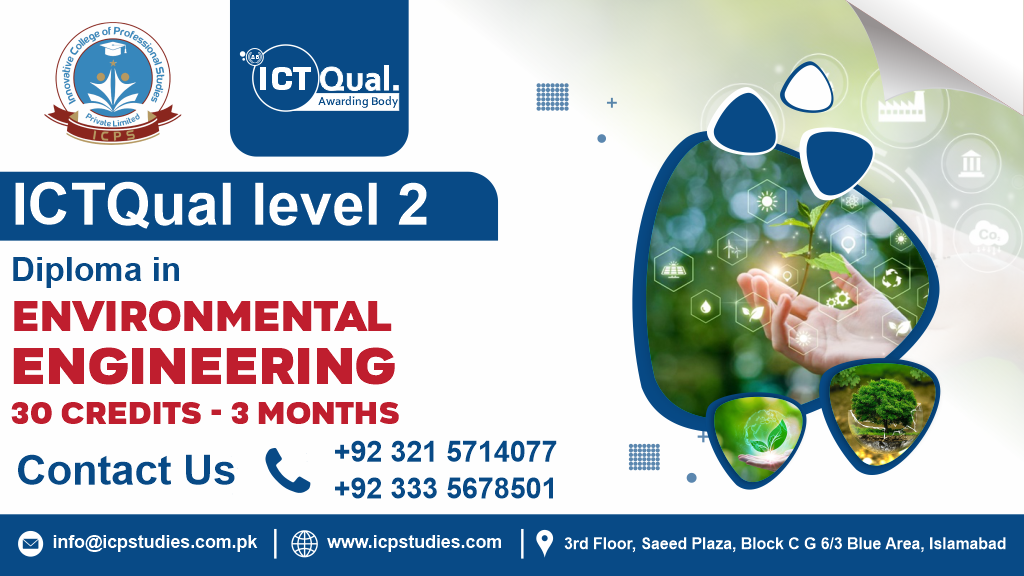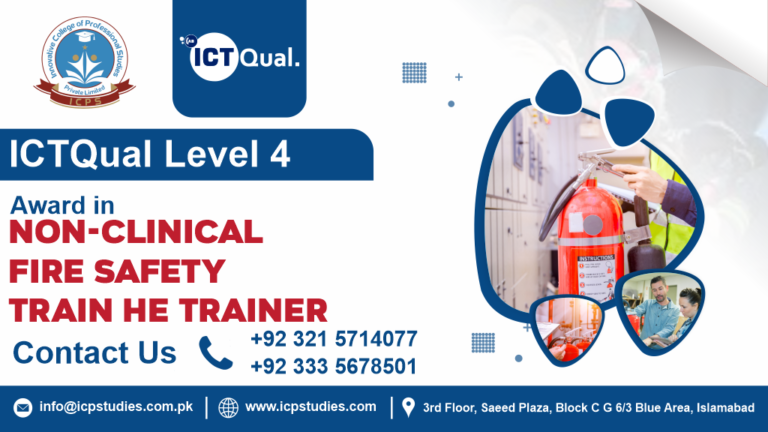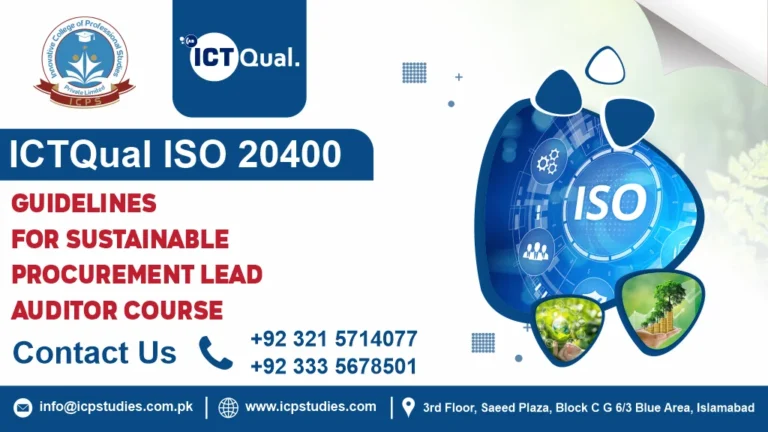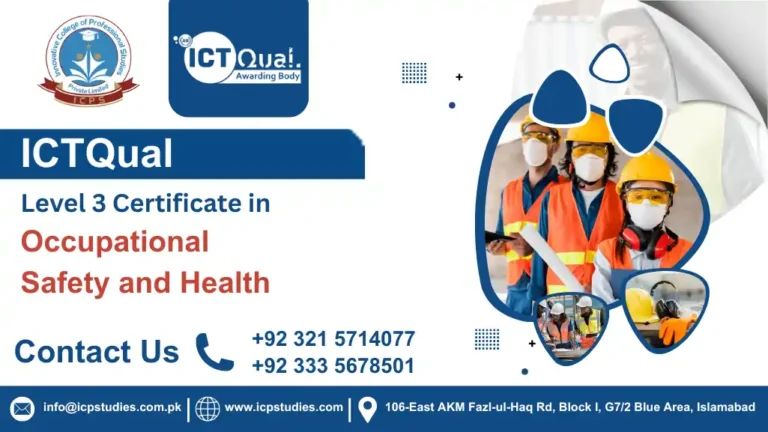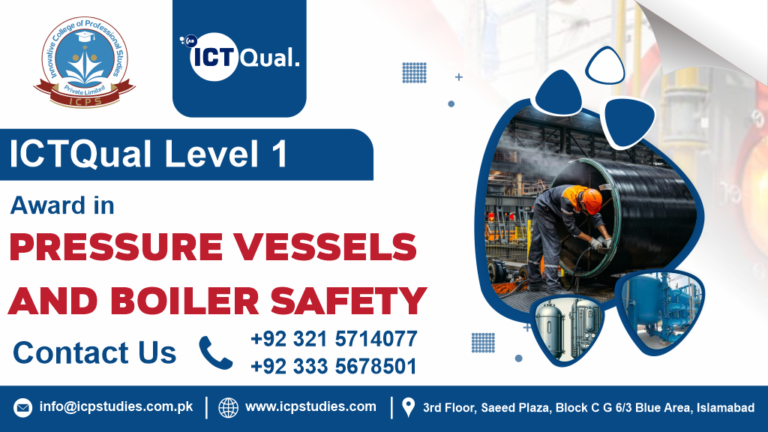The ICTQual Level 2 Diploma in Environmental Engineering (30 Credits) – 3 Months is a fast-paced, comprehensive qualification designed to equip you with the skills and knowledge required to thrive in the growing field of environmental engineering. Over the course of three months, you will gain practical and theoretical expertise in environmental management, sustainability, and environmental protection technologies.
The ICTQual Level 2 Diploma in Environmental Engineering provides learners with an in-depth understanding of the principles and practices that drive environmental engineering. This 3-month course covers key topics such as environmental management, pollution control, sustainable practices, and environmental regulations. Throughout the program, learners will develop the practical skills needed to work in areas such as waste management, water quality, and environmental health, alongside knowledge of industry-specific regulations and practices.
The course blends theoretical learning with hands-on applications to prepare you for real-world challenges in environmental engineering. By the end of the diploma, you will have the competence to contribute to environmental protection projects, work within regulatory frameworks, and apply sustainable engineering practices to improve environmental quality.
The ICTQual Level 2 Diploma in Environmental Engineering (30 Credits) – 3 Months is an excellent qualification for anyone looking to start or advance their career in environmental engineering. With a focus on practical learning and real-world application, this course will provide you with the knowledge and skills needed to succeed in this rapidly evolving field.
All About ICTQual Level 2 Diploma in Environmental Engineering 30 Credits – 3 Months
Course Overview
The ICTQual Level 2 Diploma in Environmental Engineering (30 Credits) – 3 Months is an intensive, practical qualification designed to provide you with the essential skills and knowledge required to succeed in the field of environmental engineering. This 3-month course equips learners with a strong foundation in key environmental engineering principles, sustainable practices, pollution control, and environmental management.
Environmental engineering plays a crucial role in addressing global challenges such as climate change, pollution, and resource depletion. Through this course, you will learn how to design, implement, and maintain systems that protect the environment and promote sustainability. Whether you are new to the field or looking to formalize your knowledge, this diploma will give you the tools to contribute meaningfully to sustainable development and environmental protection projects.
By the end of the course, you will be well-prepared to work in various environmental engineering sectors, including waste management, water treatment, environmental assessments, and pollution control. The course combines theoretical learning with hands-on experience to ensure you are job-ready and equipped to tackle the challenges of modern environmental engineering.
Study Units
- Introduction to Environmental Engineering and Sustainability
- Environmental Science and Engineering Principles
- Green Technologies and Environmental Impact Assessment
Entry Requirements
The ICTQual Level 2 Diploma in Environmental Engineering (30 Credits) – 3 Months is designed for individuals who are eager to begin or advance their career in the environmental engineering sector. While prior experience in environmental engineering is not required, there are a few basic entry requirements to ensure you are well-prepared for the course:
1. Age
- You must be 16 years or older to enroll in this course.
2. Educational Background
- A basic understanding of mathematics and science (e.g., GCSEs or equivalent) is recommended, as these subjects provide foundational knowledge that will be used throughout the course.
- No specific prior qualifications in environmental engineering are required, making it accessible to beginners in the field.
3. Language Proficiency
- As the course materials and assessments are delivered in English, a good understanding of written and spoken English is essential for successful completion of the course.
4. Commitment and Motivation
- The course is designed to be intensive, and students are expected to be committed and dedicated to completing the coursework and assignments on time.
- You should be prepared to dedicate approximately 10-15 hours per week to study and practical assignments.
5. Technical Requirements for Online Learning (If Applicable)
- If you choose to study online, you will need access to a computer or laptop with an internet connection to access course materials, participate in online discussions, and submit assignments.
6. No Prior Experience Required
- This course is open to individuals who are new to the environmental engineering field, as well as those looking to formalize their existing skills. Whether you are starting from scratch or seeking to enhance your knowledge, this diploma will provide a solid foundation for further career development.
By meeting these entry requirements, you’ll be well-positioned to succeed in the ICTQual Level 2 Diploma in Environmental Engineering and gain valuable skills that will open up numerous career opportunities in the environmental sector.
The ICTQual Level 2 Diploma in Environmental Engineering (30 Credits) – 3 Months is ideal for a range of individuals looking to start or advance their careers in the environmental engineering sector. Whether you’re new to the field or seeking to formalize your knowledge, this course offers the skills and practical experience you need to succeed in environmental engineering roles.
This course is for:
1. Aspiring Environmental Engineers
- If you’re interested in pursuing a career in environmental engineering, this diploma will provide you with the fundamental knowledge and practical skills necessary to enter the field and start making a difference in sustainable development.
2. Construction and Engineering Professionals
- Professionals working in construction, civil engineering, or other engineering fields who wish to specialize in environmental practices. This qualification will enable you to integrate sustainable and environmentally responsible techniques into your current projects.
3. Sustainability Enthusiasts
- If you’re passionate about sustainability and want to actively contribute to environmental protection, this course will equip you with the knowledge to implement sustainable practices and pollution control methods in various engineering contexts.
4. Technicians and Apprentices
- If you’re already working in an engineering role or an apprenticeship and wish to enhance your qualifications and specialize in environmental engineering, this diploma offers the technical expertise needed to broaden your career prospects.
5. Career Changers
- Individuals considering a career change into the growing environmental sector. If you’re looking for a structured and comprehensive way to transition into environmental engineering, this diploma offers the foundational knowledge to help you make that move.
6. Students Pursuing Engineering Careers
- Students who are studying general engineering and want to focus on environmental engineering. The course provides a solid foundation in environmental management, sustainability, and pollution control, which are valuable for any engineering discipline with a focus on environmental responsibility.
7. Environmental Consultants and Managers
- Current environmental consultants or managers who want to formalize their knowledge, gain additional qualifications, and stay up-to-date with the latest environmental engineering practices and regulations.
8. Government and Regulatory Body Professionals
- If you work with governmental or regulatory organizations involved in environmental protection, this course will enhance your ability to understand and implement environmental engineering standards and regulations in your work.
9. NGO and Non-Profit Workers
- If you are employed by an environmental NGO or non-profit organization focused on sustainability, waste management, or environmental advocacy, this diploma will provide you with the technical knowledge to support and lead various environmental projects.
By completing this course, you will be equipped to make significant contributions to environmental sustainability projects, solve real-world environmental challenges, and pursue a fulfilling career in the ever-growing field of environmental engineering. Whether you’re starting your career or seeking to specialize further, this qualification is your first step toward making a positive impact on the planet.
Learning Outcomes
Introduction to Environmental Engineering and Sustainability
By the end of this unit, learners will be able to:
- Understand the core principles and practices of environmental engineering and sustainability.
- Recognize the critical role of engineers in tackling environmental issues such as pollution and resource depletion.
- Explain the concept of sustainable development and its importance in modern engineering practices.
- Identify various environmental challenges impacting global ecosystems and propose engineering solutions to address them.
- Interpret environmental laws, policies, and regulations that guide engineering practices and ensure compliance.
2. Environmental Science and Engineering Principles
By the end of this unit, learners will be able to:
- Demonstrate a solid understanding of ecosystems and their role in promoting environmental sustainability.
- Understand the different types and sources of pollution (air, water, and soil) and their effects on the environment.
- Apply basic engineering principles to address environmental concerns, including waste management, water treatment, and air quality control.
- Conduct environmental assessments to evaluate the impacts of engineering solutions on the environment.
- Propose effective engineering strategies to minimize environmental harm and enhance sustainability.
3. Green Technologies and Environmental Impact Assessment
By the end of this unit, learners will be able to:
- Identify and describe key green technologies, such as renewable energy systems, waste-to-energy solutions, and energy-efficient technologies.
- Understand the role of green technologies in reducing environmental footprints and promoting long-term sustainability.
- Conduct an Environmental Impact Assessment (EIA) for proposed projects, assessing potential environmental risks and benefits.
- Evaluate the feasibility and practicality of implementing green technologies across various engineering projects.
- Assess the long-term environmental and economic benefits of adopting sustainable technologies in engineering practices.
FAQs about ICTQual Level 2 Diploma in Environmental Engineering 30 Credits – 3 Months

